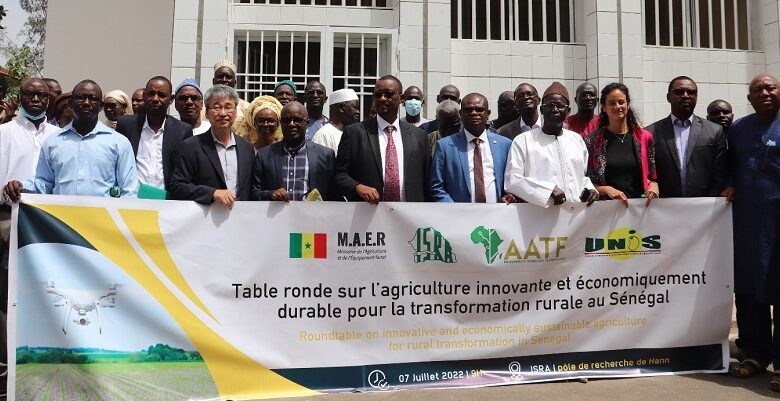Read in
African Agricultural Technology Foundation(AATF) and the Government of Senegal, through the Institut Sénégalais de Recherches Agricoles (ISRA) and Union Nationale Interprofessionnelle des Semences du Sénégal (UNIS), have entered into a strategic partnership aimed at improving agricultural productivity in the West African nation and in the West African sub-region.
The partnership targeted priority crops such as rice, maize, groundnuts, and cassava that the government was working on to improve its productivity amidst vulnerabilities of climate change.
Speaking at the opening of a high-level roundtable in Dakar on Innovative and Economically Sustainable Agriculture for Rural Transformation, Dr Moussa Baldé, Minister for Agriculture and Rural Equipment, said Senegal was an agrarian nation with a substantial percentage of the population engaged in subsistence farming.
“Senegal is a net food importer. The production of food crops does not meet Senegal’s needs. The production of major staple food crops covers barely 30 per cent of consumption needs. The country imports almost 70 per cent of its food and people go hungry even though 60 per cent of the workforce is engaged in food crop production, yet only 65 per cent of Senegal’s 3.8 million hectares of arable land is farmed,” he stated.
Dr Balde was optimistic that the collaboration with AATF will bring valuable interventions capable of setting the country’s agricultural sector on the pathway of success and help other farmers in the sub-region.
Dr Canisius Kanangire, Executive Director, AATF, said that AATF used a public-private model to support technology transfer to benefit farmers in the most sustainable and affordable manner.
He was hopeful AATF could do the same in Senegal through the partnership with the government.
“At AATF, we have managed development and released variety of technologies that address challenges impacting smallholder farmer productivity. It is my sincere hope that with appropriate information and deployment, farmers in Senegal will benefit from such technology,” Dr Kanangire added.
Dr Momar Talla Seck, Director General, ISRA, said agriculture, an important element for economic development, remained one of the sectors most affected by the effects of climate change. -Xinhua


